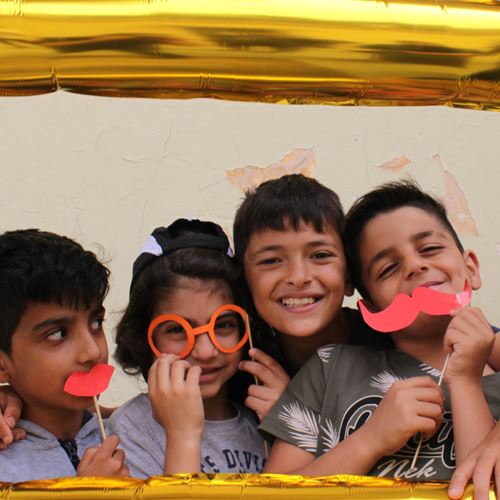The termination in January 2023 of the national urban accommodation programme for asylum-seekers and displaced people in Greece - Emergency Support to Integration and Accommodation (ESTIA II) - forced an increasing number of refugee and asylum-seeking children to move back into government-run sites. As a result, they had to leave behind the communities and schools they had become part of.
‘Life in a temporary accommodation site can be tough for children. They often struggle to find places where they can feel safe and this will obviously have long-lasting impact on their development, emotional wellbeing and general prospects for the future,’ says Christina Papatheodorou, Country Director for Danish Refugee Council in Greece.
While mobility and options for unaccompanied minors and children of displaced families in Greece are shrinking, DRC is concerned about the decrease in available services and protection actors on sites for both adults and children.
‘We know of children who were frequently using our child-friendly spaces, who no longer have places and people to turn to when they need help and guidance. What makes this situation particularly dire and concerning is the common knowledge that displacement and family separation often stand in the way of children’s access to education and medical care. Furthermore, in these vulnerable situations as displaced, children are exposed to substantive risks, including neglect, exposure to traumatic events and sexual exploitation,’ says Christina Papatheodorou.
Child-friendly spaces are established by aid organisations such as DRC to address the protection and psychosocial needs of children aged 6-17 years old, and to support younger children in the context of humanitarian crises. The child-friendly spaces provide a temporary and safe environment in which children may find some degree of normalcy and with access to expertise to support their psychosocial and cognitive well-being in situations of extreme adversity.
DRC teams in Greece are currently present in two urban areas and at 10 government-run sites across Greece and provide non-formal education and psycho-social activities to refugee and migrant children as part of its UNICEF initiative, co-funded by the European Union, All Children in Education (ACE) project.
